
International memberships
LSMU is a member of the following international associations

The European University Association (EUA) represents more than 850 universities and national rectors’ conferences in 49 European countries. EUA plays a crucial role in the Bologna Process and in influencing EU policies on higher education, research, and innovation. Through continuous interaction with a range of other European and international organisations, EUA ensures that the independent voice of European universities is heard.

LSMU is a member of the Association of Academic Health Centres International (AAHCI). Collaboration among academic health centres drives innovation, builds resilience, and leads to better health and healthcare for people everywhere. European Regional Office of the Alliance of Academic Health Centres International promotes the core values of academia through international collaboration, which is utmost important to society, particularly during these challenging times. AAHCI is a wholly owned subsidiary of Association of American Medical Colleges (AAMC) – a community of students, residents, researchers, faculty members, physicians, and others who advocate on behalf of academic medicine to improve the health of people everywhere.

The Association for Medical Education in Europe (AMEE) is a worldwide organisation with members in over 90 countries across five continents. Members include teachers, educators, researchers, administrators, curriculum developers, deans, evaluators, students, and trainees in the medical and healthcare professions.
AMEE promotes international advancement in healthcare professions through undergraduate, graduate, and continuing education processes. AMEE, in collaboration with other organisations, supports teachers and institutions in their current educational activities while advising them on new developments, advances, and methodologies.
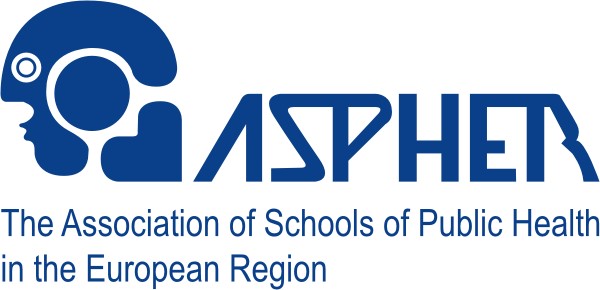
The Association of Schools of Public Health in the European Region (ASPHER) is the key independent European organisation dedicated to improving and protecting the public health by strengthening education and training of public health professionals for both practice and research. The main functions of the Association are:
To support the professionalisation of the public health workforce in Europe, whilst respecting the diversity of national and regional contexts in which each school of public health operates, and thus:
To sustain capacity building in public health, so that it balances with national and European population health challenges and threats and is supported by best standards of public health education and training, scientific research, and practice.
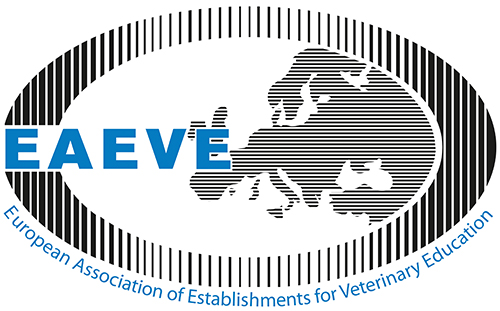
The Faculty of Veterinary Medicine is a member of the European Association of Establishments for Veterinary Education (EAEVE).
The EAEVE mission is to represent and support its member establishments within Europe and globally, to drive the harmonization of a research-based veterinary education and its constant evolution in the context of societal challenges.
Members are the faculties, schools and universities involved in teaching and research in veterinary medicine and science. In 2021, out of the 110 Veterinary Educational Establishments existing in Europe, 101 were members of the EAEVE.
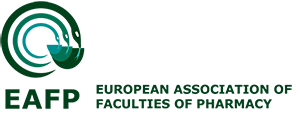
The mission of European Association of Faculties of Pharmacy (EAFP) is to lead advancement of pharmacy education and research to reflect developments in pharmacy and the needs of society. This is achieved by facilitating contacts and collaboration between University-level schools of pharmacy, supporting member faculties in their efforts to develop effective methods of learning and teaching and developing harmonised European quality standards for the structure and outcomes of pharmacy education.
EAPF is at the forefront of developments in pharmacy education and pharmacy in the various professionals settings including community pharmacy, hospital and clinical pharmacy, industrial pharmacy and the pharmaceutical regulatory field. EAPF serves as a platform for its member institutions to be part of the changes, plan the future and address chalenges to ensure that the high standarts that are achieved in pharmacy education and research within faculties of pharmacy is maintaned.
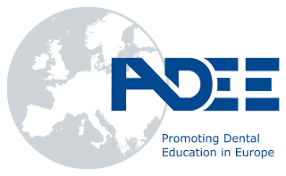
The Association of Dental Education in Europe (ADEE) brings together a broad-based membership across Europe comprised of dental schools, specialist societies and national associations concerned with dental education. ADEE is committed to the advancement of the highest level of health care for all people of Europe.
Two WHO Collaborating Centres
- WHO Collaborating Centre for Nursing Education and Practice
Since 2016, the Faculty of Nursing of the Lithuanian University of Health Sciences is contributing to the World Health Organization (WHO). The Faculty of Nursing is an accredited WHO Collaborating Centre for Nursing Education and Practice – one of the eight approved WHO collaborating centres in the field of nursing in the European region, assisting WHO in the implementation of strategic nursing guidelines and recommendations, contributing to the consolidation of nursing science progress in practice, sharing experience in the field of nursing education with other institutions in the region, promoting the development of advanced nursing practice at the primary health care level. Prof. Jūratė Macijauskienė and Prof. Aurelija Blaževičienė were appointed the heads of the Collaborating Centre.
- WHO Collaborating Centre for Prevention and Control of Chronic Non-Communicable Diseases
Led by Dr. Mindaugas Štelemėkas at the Health Research Institute of the Faculty of Public Health. The Centre operates since 2012 as the World Health Organization accredited Collaborating Centre for the Prevention and Control of Chronic Non-Communicable Diseases. Accreditation is valid till 2024. The main objectives of the cooperation are research in the fields of biomedicine and social sciences, training of scientists, provision of the of expert services for institutions that formulate and implement the general health policy of the country and its individual regions.
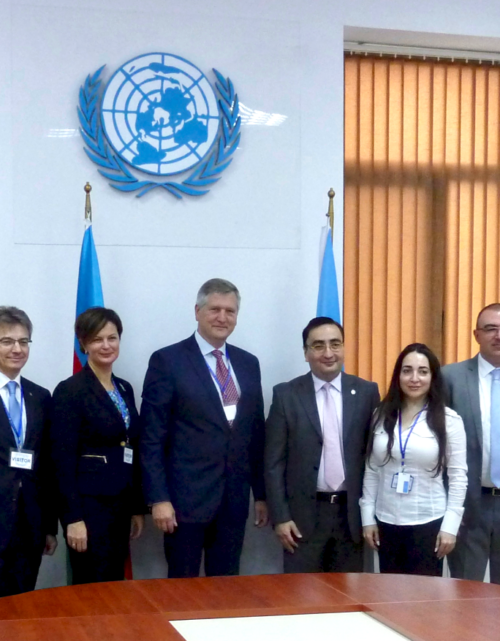
LSMU is a member of the following international networks
LSMU is a partner of two scientific valleys
LSMU is a partner of two scientific valleys Nemunas and Santaka; as a consequence, two different open access centres have been established. Currently, LSMU has the following open access centres:
- Centre for the Advanced Pharmaceutical and Health Technologies
- Centre for Animal Nutrition and Biotechnology
- Centre for Animal Health and Quality of Raw Materials of Animal Origin
